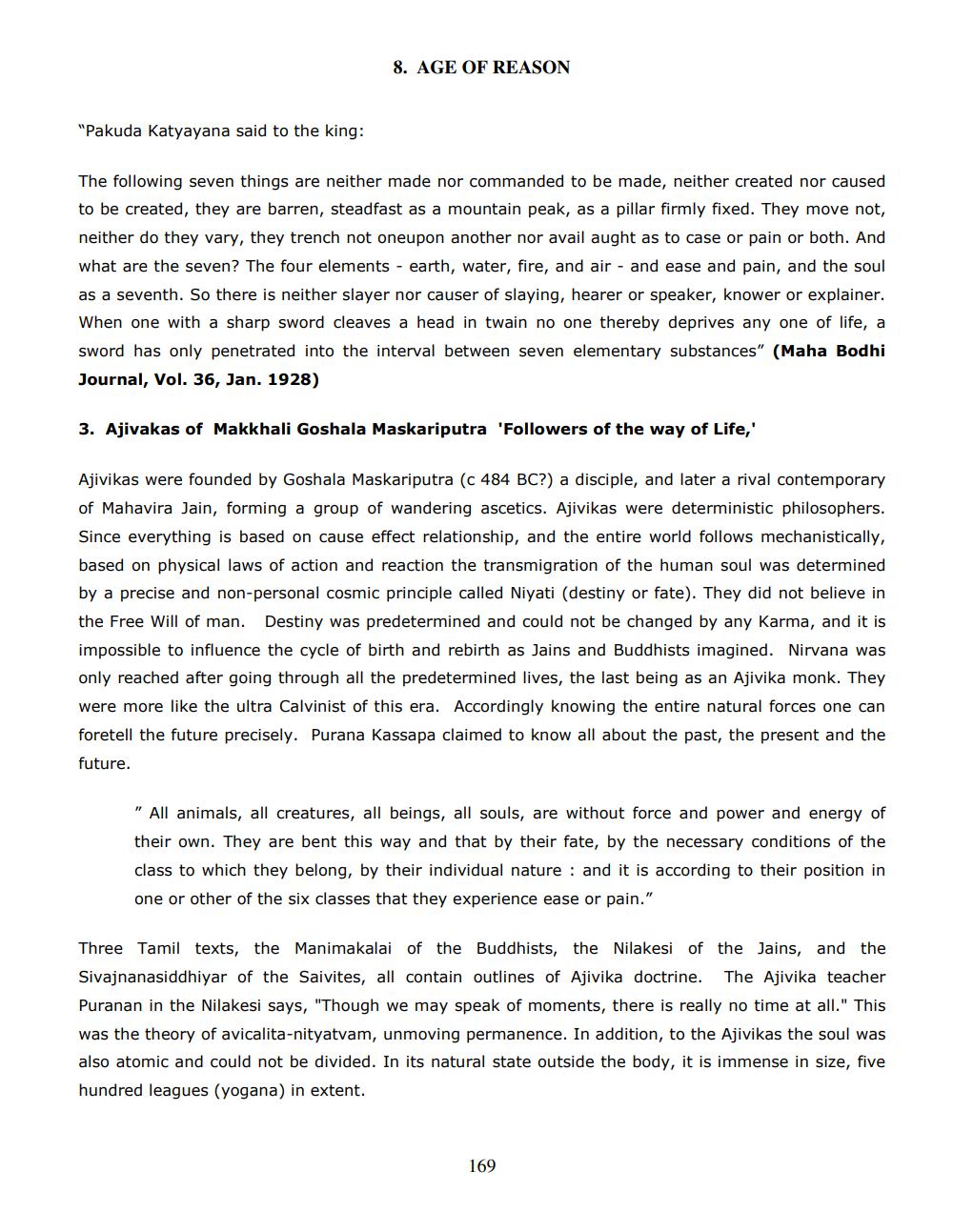________________
8. AGE OF REASON
"Pakuda Katyayana said to the king:
The following seven things are neither made nor commanded to be made, neither created nor caused to be created, they are barren, steadfast as a mountain peak, as a pillar firmly fixed. They move not, neither do they vary, they trench not oneupon another nor avail aught as to case or pain or both. And what are the seven? The four elements - earth, water, fire, and air - and ease and pain, and the soul as a seventh. So there is neither slayer nor causer of slaying, hearer or speaker, knower or explainer. When one with a sharp sword cleaves a head in twain no one thereby deprives any one of life, a sword has only penetrated into the interval between seven elementary substances" (Maha Bodhi Journal, Vol. 36, Jan. 1928)
3. Ajivakas of Makkhali Goshala Maskariputra 'Followers of the way of Life,'
Ajivikas were founded by Goshala Maskariputra (c 484 BC?) a disciple, and later a rival contemporary of Mahavira Jain, forming a group of wandering ascetics. Ajivikas were deterministic philosophers. Since everything is based on cause effect relationship, and the entire world follows mechanistically, based on physical laws of action and reaction the transmigration of the human soul was determined by a precise and non-personal cosmic principle called Niyati (destiny or fate). They did not believe in the Free Will of man. Destiny was predetermined and could not be changed by any Karma, and it is impossible to influence the cycle of birth and rebirth as Jains and Buddhists imagined. Nirvana was only reached after going through all the predetermined lives, the last being as an Ajivika monk. They were more like the ultra Calvinist of this era. Accordingly knowing the entire natural forces one can foretell the future precisely. Purana Kassapa claimed to know all about the past, the present and the future.
"All animals, all creatures, all beings, all souls, are without force and power and energy of their own. They are bent this way and that by their fate, by the necessary conditions of the class to which they belong, by their individual nature and it is according to their position in one or other of the six classes that they experience ease or pain."
Three Tamil texts, the Manimakalai of the Buddhists, the Nilakesi of the Jains, and the Sivajnanasiddhiyar of the Saivites, all contain outlines of Ajivika doctrine. The Ajivika teacher Puranan in the Nilakesi says, "Though we may speak of moments, there is really no time at all." This was the theory of avicalita-nityatvam, unmoving permanence. In addition, to the Ajivikas the soul was also atomic and could not be divided. In its natural state outside the body, it is immense in size, five hundred leagues (yogana) in extent.
169




